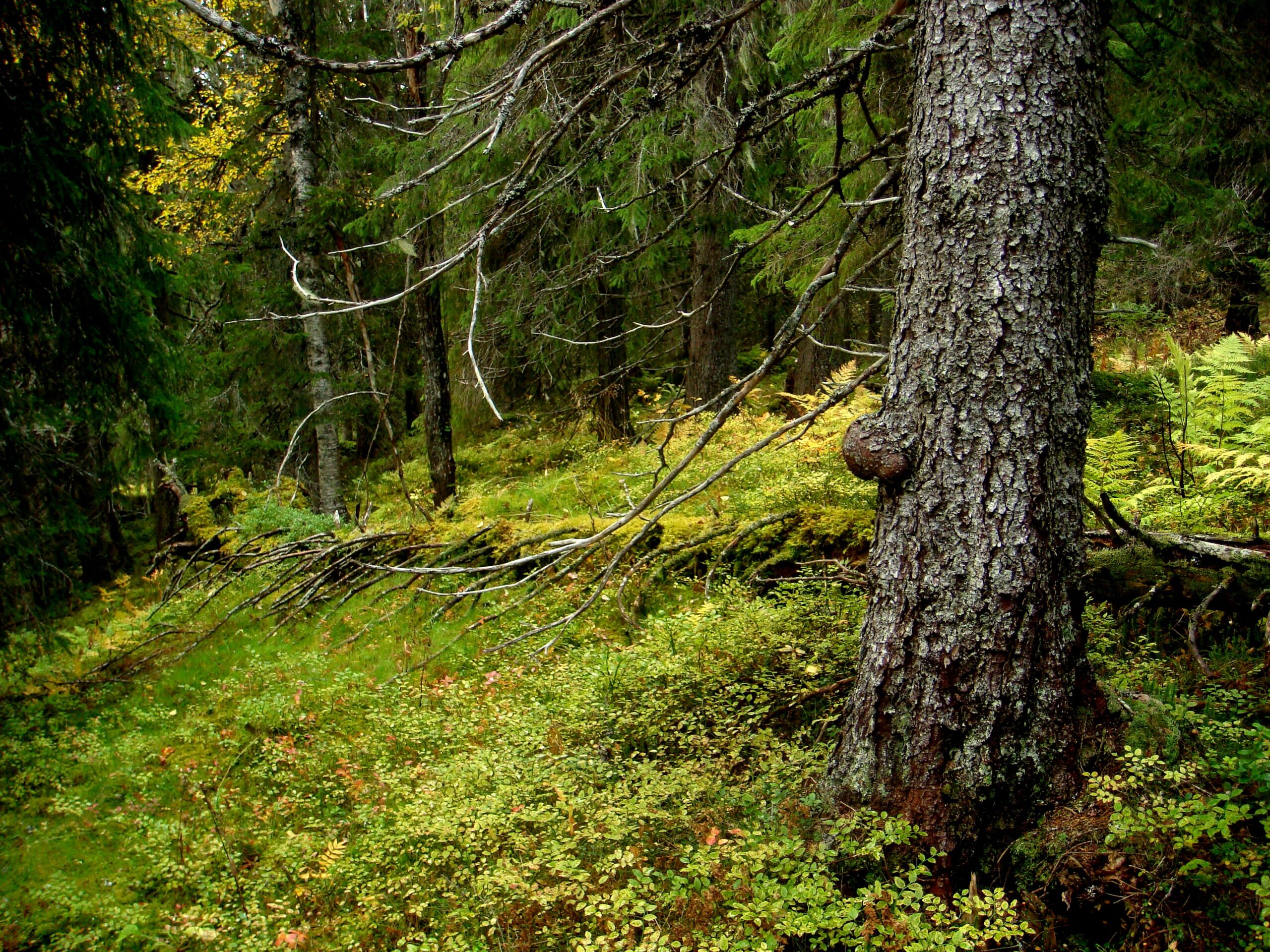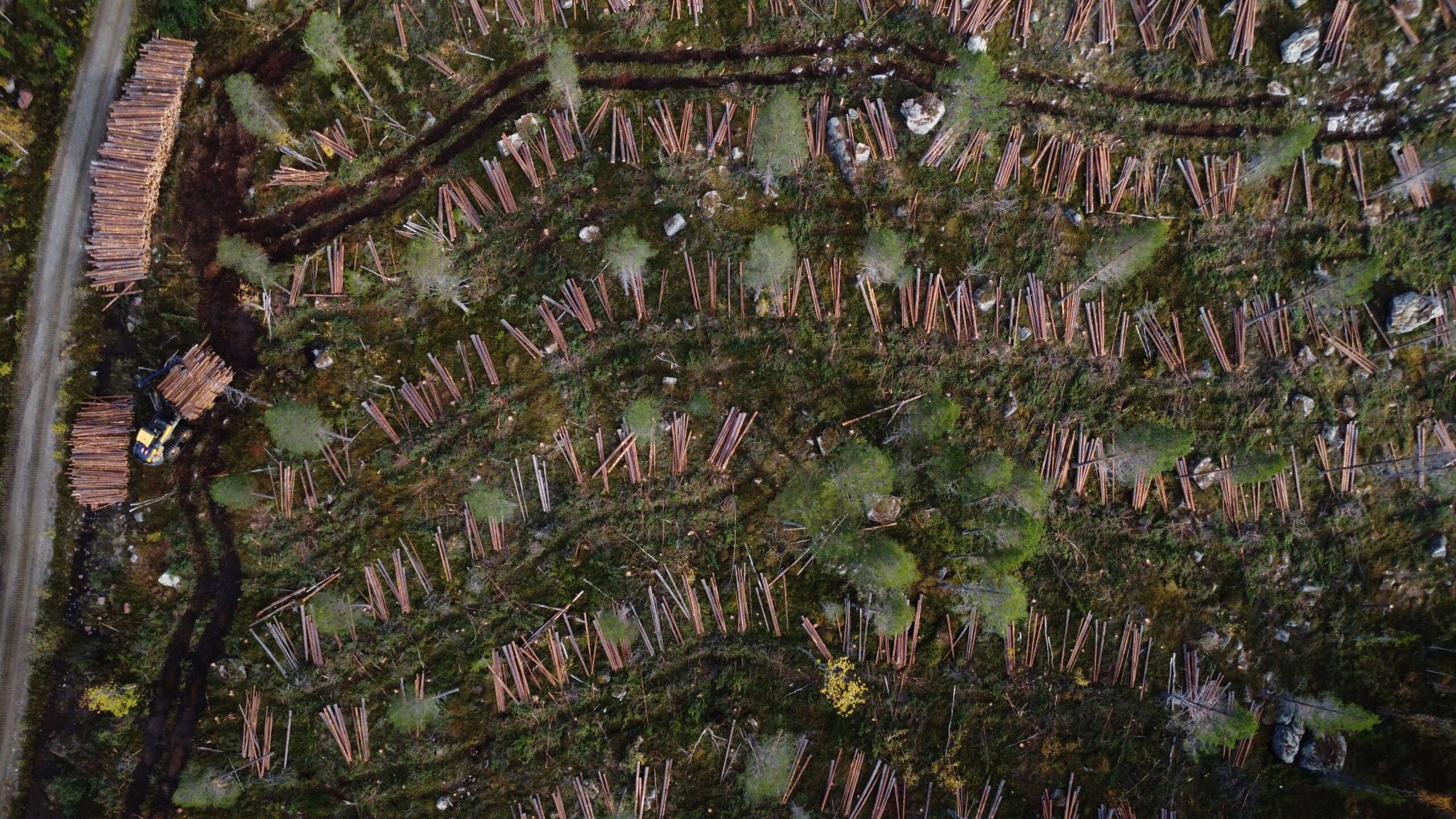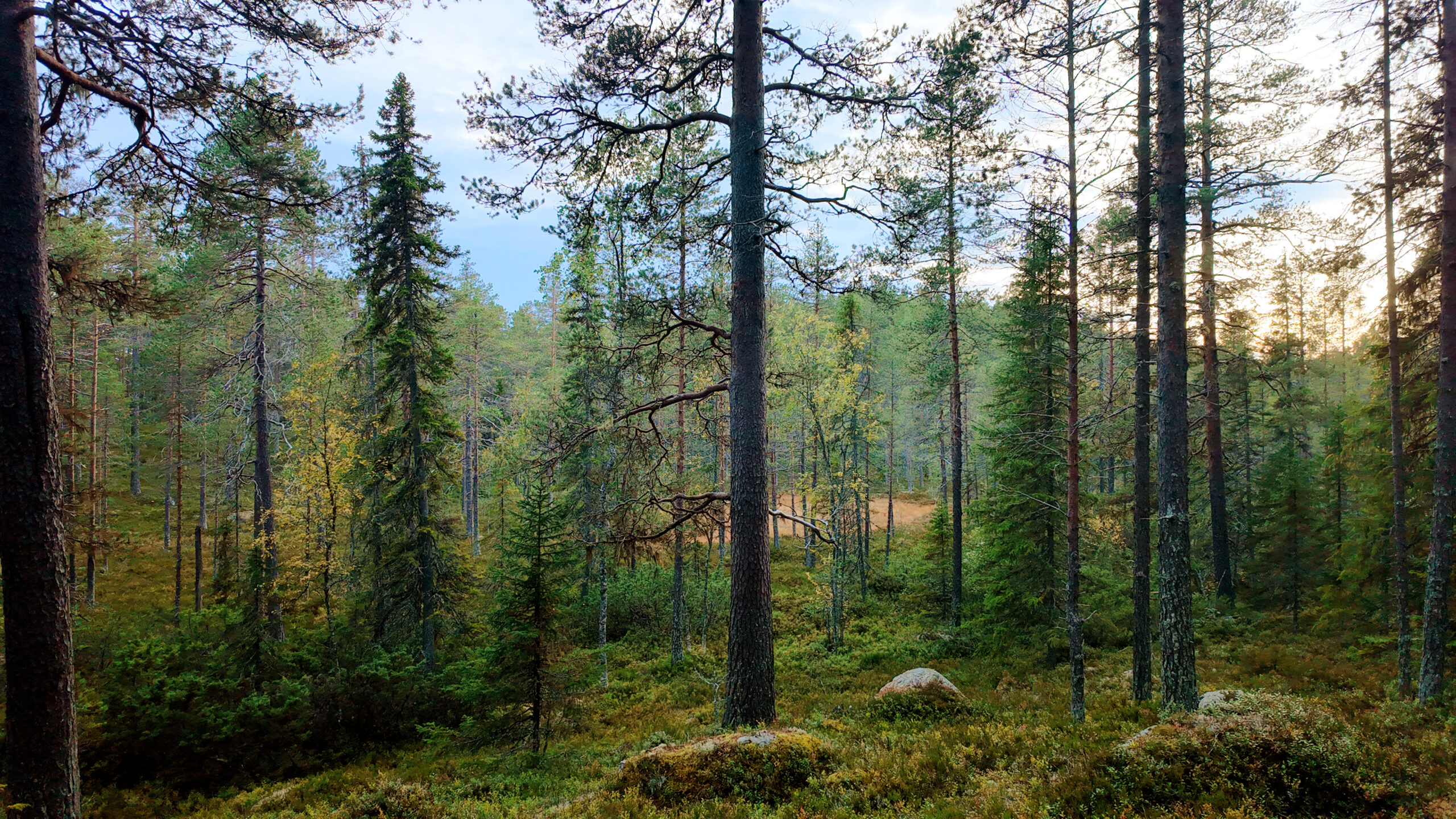What’s the problem?
-
Sweden’s old-growth and continuity forests are disappearing at an alarming rate ▼
These forest ecosystems are vital for their biodiversity and for the indigenous Sámi people. They also provide ecosystem functions we all depend on, and through their large carbon stocks and resilience they play a crucial part in these times of rapid climate change. They also make up an essential part of Europe’s last natural forest ecosystems.
-
End consumers are unknowingly destroying precious natural forests ▼
By buying products made from or packaged in forest-based material originating from Sweden, there’s a high risk that you are unknowingly contributing to the destruction of the EU’s remaining natural forests. These precious forests have a unique biodiversity and long continuity, and are self-regulating, complex dynamic habitats. Forests that have not been clear-cut in the past are finite critical habitats.
-
SCA and other forestry companies is rapidly destroying the Swedish natural forests and regularly violates indigenous rights ▼
The main culprit behind this disastrous destruction is SCA, Europe’s largest private forest owner. Although the company has been FSC-certified for more than 20 years, it has repeatedly and systematically clear cut forests with conservation values – home to protected and threatened species, as well as logged forests without consent from the indigenous communities.


What’s the solution?
-
That Essity and DS Smith follow Nestlé’s lead and stop trading with SCA ▼
SCA doesn’t care about sustainability – but they do care about money. This means that the responsibility for saving Sweden’s natural forests falls on their big customers. They need to be part of the solution and force SCA to change. Because it’s urgent.
-
If Essity and DS Smith wants to continue trading with SCA, they must ensure that SCA stops destroying forests with conservation values and stops violating the rights of indigenous peoples ▼
SCA must adhere to sustainability principles and respect indigenous rights. Big customers need to demand action and a change of forest management practices to prevent further destruction.
-
As an end consumer you can do a lot by supporting our petition and reducing your total consumption to a sustainable level ▼
The first step you should do as a consumer is to use less. Avoid single-use items and unnecessary products. Choose durable, reusable items where possible, or items made from recycled materials. Choose second hand when possible. Be aware that FSC and PEFC certified forest products from Sweden are in no way a guarantee of sustainable forestry. Demand from decision-makers, forestry, and industry that they protect and restore our precious forest ecosystems and change forest management and production patterns.



Dear Essity and DS Smith
As you are large buyers of SCA forest products, you are participating in the destruction of Sweden’s natural forests. Continuing to source pulp- and paper products from SCA, despite knowledge of their destructive forestry methods, is undefendable. We demand that you take action.
As you are large buyers of SCA forest products, you are participating in the destruction of Sweden’s natural forests. Continuing to source pulp- and paper products from SCA, despite knowledge of their destructive forestry methods, is undefendable. We demand that you take action. As a customer, I do not want products made of or packaged in materials that come from, or risk coming from, destruction of natural forests in Sweden. You must stop sourcing forest products from SCA, and other companies that cut forests with conservation values in Sweden, until the demands are met:
1. Implement an immediate logging moratorium in all continuity forests and other forests with
conservation values
These include (1) old-growth and primary forests and continuity forests (2) woodland key habitats and other forests with documented conservation values (designated in municipal plans, via SIS-standard, or similar), (3) areas classified by the Swedish Environmental Protection Agency (SEPA) as core areas which are of great importance for plants and animals, (4) pendulous lichen-rich and lichen-rich old forest important for the Sámi community, and (5) all unprotected forest habitat types under the Habitats Directive which lack favourable conservation status. These five categories may in many cases overlap. All forests mapped with remote sensing as potential continuity forest or old forest with conservation values must be evaluated in the field by SEPA and the County Administrative Boards. Where the field surveys confirm conservation or restoration values the area should be protected from logging. Maps of potential continuity forests and forests with conservation values are found here:
skogsmonitor.se/en and
skyddadnatur.naturvardsverket.se.
Even though there is a lack of comprehensive data on all existing areas with high conservation value, the moratorium can be implemented immediately for the known areas using today’s knowledge. A moratorium would secure all known conservation value forest until strict protection is in place.
*.
2. Forestry must respect indigenous rights and listen to the demands made by the Sámi reindeer husbandry. This includes adhering to the principles of Free, prior and informed consent (FPIC).
3. Immediately stop planting the non-native tree species lodgepole pine (Pinus contorta) and begin the decommissioning of existing lodgepole pine plantations.
* The demands of this appeal are directed to Nestlé, Essity and DS Smith, but also applies to any other companies sourcing forest products from the Swedish forest company SCA. SCA is Europe’s largest forest owner and a major supplier of pulp and cardboard to the European market. Read more about SCA’s destructive forestry here.





